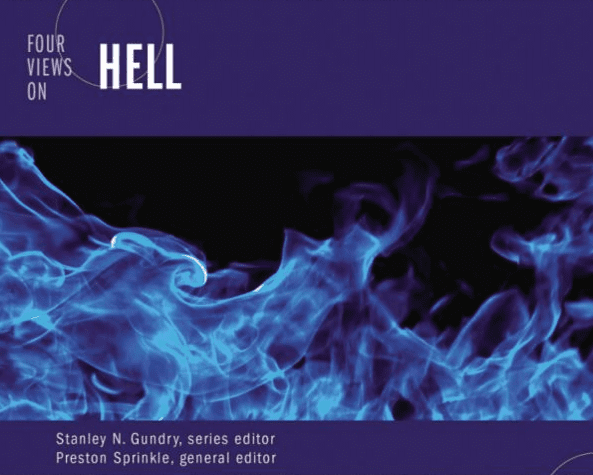 In the exceptionally useful anthology of scholarly pieces on conditionalism (or annihilationism) in Rethinking Hell (ed. C.M. Date, GG. Stump, J.W. Anderson), one of the most important contributions is by Harold E. Guillebaud, whose work is now harder to find (I find no copies available through Amazon).
In the exceptionally useful anthology of scholarly pieces on conditionalism (or annihilationism) in Rethinking Hell (ed. C.M. Date, GG. Stump, J.W. Anderson), one of the most important contributions is by Harold E. Guillebaud, whose work is now harder to find (I find no copies available through Amazon).
Guillebaud lays down some strong lines to open this chp: “… neither Matt 25:46 nor any other text containing the word ‘eternal’ can be used as proof of the doctrine of everlasting torment… On the other hand, there are certain passages, not more than four in all (Matt 18:34, 35; Mark 9:43-49; Rev 14:10-11; 20:10), the first obvious meaning of which does seem to point to an everlasting continuance of conscious suffering in hell for those who are sent there” (155-156).
The author thinks these passages must be examined after one learns the “general teaching of the New Testament on this subject.”
1. The general teaching affirms separation from God. Forever, eternally. It also affirms suffering, pain, and anguish — a “terrible death” — but not an endless suffering. The fire theme naturally speaks to the issue of devouring, consuming, and destroying. (That’s what fire does.)
2. To be sure, sometimes “death” or “destruction” imply ongoing existence: those who are “dead in sins” are nonetheless alive and living, and destroy can mean ruined or useless. “But it is possible to press this fact too far, true as it is” (160). [ECT defenders ought to be pressing this theme more than they do; one who does is D.J. Moo.] Guillebaud believes the evidence is present when this non-final sense is at work, and the evidence he has studied apart from the first four texts counts against everlastingness in life and punishment/torment. When the term destroy appears in judgment texts the context gives no clue it does not mean total destruction or that it means ruination but continuance (Phil 3:19; Heb 10:27).
3. Guillebaud contends “ruin” rather than “destruction” requires contextual clarity rather than contextual assumptions; he thinks the meaning of ruin is a “secondary” meaning (which seems fair enough). This is a good point. Circular reason often finds its way into this discussion: one assumes ECT, one reads the text in light of ECT, then one concludes ECT.
4. Hence, general teaching: immortality is a gift, not innate; death is the wage of sin, and death normally means destruction; one ought therefore to think the end is elimination not endless punishment. When destroy is by way of fire the point is to consume and destroy.
5. The four passages are then examined adequately.
Mark 9:43-48. Depends on the imagery of Isa 66:24, which he sees as a “perpetual memorial.” Unquenchable in unquenchable fire is, in my view, hard to dismiss as nothing more than perpetual, or eternal memorial. Why a perpetual memorial? I suppose one can argue the persons are destroyed but their means of destruction remains — I don’t see how this survives the accusation of sadistic. It’s like putting up a guillotine in the city square. I see no purpose. What do you think of the “eternal/perpetual memorial” theory?
But perhaps unquenchable means once it begins it cannot be put out; hence, an irresistible fire.
Rev 14:10-11: no rest day and night does not establish forever-ness, but smoke going up forever is more problematic. Once again, he sees an eternal or perpetual memorial, which again leads to the question about the viability of a perpetual memorial for the likes of the Age to Come. And Rev 20: 10 is more or less the same thing. Yet, 20:10 says “torment” is forever, even if it is the devil and the false prophet. These are not empty symbols but personal realities, however evil. Question: Does it follow that if the God of love can torment the devil forever, and the false prophet forever, why not humans? Is the false prophet ontologically that different from humans?
Guillebaud, like others, wants to “disclaim dogmatic certainty” (172) but he does explore his argument so far as it can take him, without all much balance in discussion of the other viewpoint. In the end, he thinks an ECT view of Rev 20:10 means the eternality of evil and that evil has not been finally eliminated or defeated. Defeated? Yes. Eliminated? What say you?











